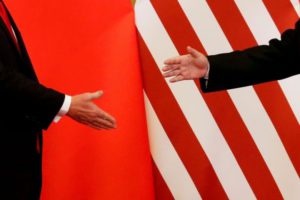 The Washington State China Relations Council supports the expansion and strengthening of trade links between the U.S. and China. The Council’s members, comprising over 100 companies, civic organizations and individuals in Washington state, believe that increased trade, economic cooperation and business activity will lead to greater prosperity in both countries and provide a platform to enhance mutual understanding between the two nations.
The Washington State China Relations Council supports the expansion and strengthening of trade links between the U.S. and China. The Council’s members, comprising over 100 companies, civic organizations and individuals in Washington state, believe that increased trade, economic cooperation and business activity will lead to greater prosperity in both countries and provide a platform to enhance mutual understanding between the two nations.
The Council welcomes the resumption of trade talks between the U.S. and China. WSCRC’s members encourage the negotiators to reduce barriers to trade and strengthen provisions that enable corporations to compete in a fair and transparent manner. Our members desire a stable and open commercial relationship with China.
The WSCRC notes that both the U.S. and China have contributed to today’s negative trading environment. The imposition of tariffs by the U.S. has added unforeseen burdens on companies and consumers in both countries. Chinese policies that block market access for foreign companies and insufficiently protect intellectual property have been major contributing factors to today’s trade standoff. In light of recent setbacks in trade negotiations, the Council strongly urges negotiators on both sides to find common ground quickly, to resume normal trading relations and prevent a slowdown in global economic growth.